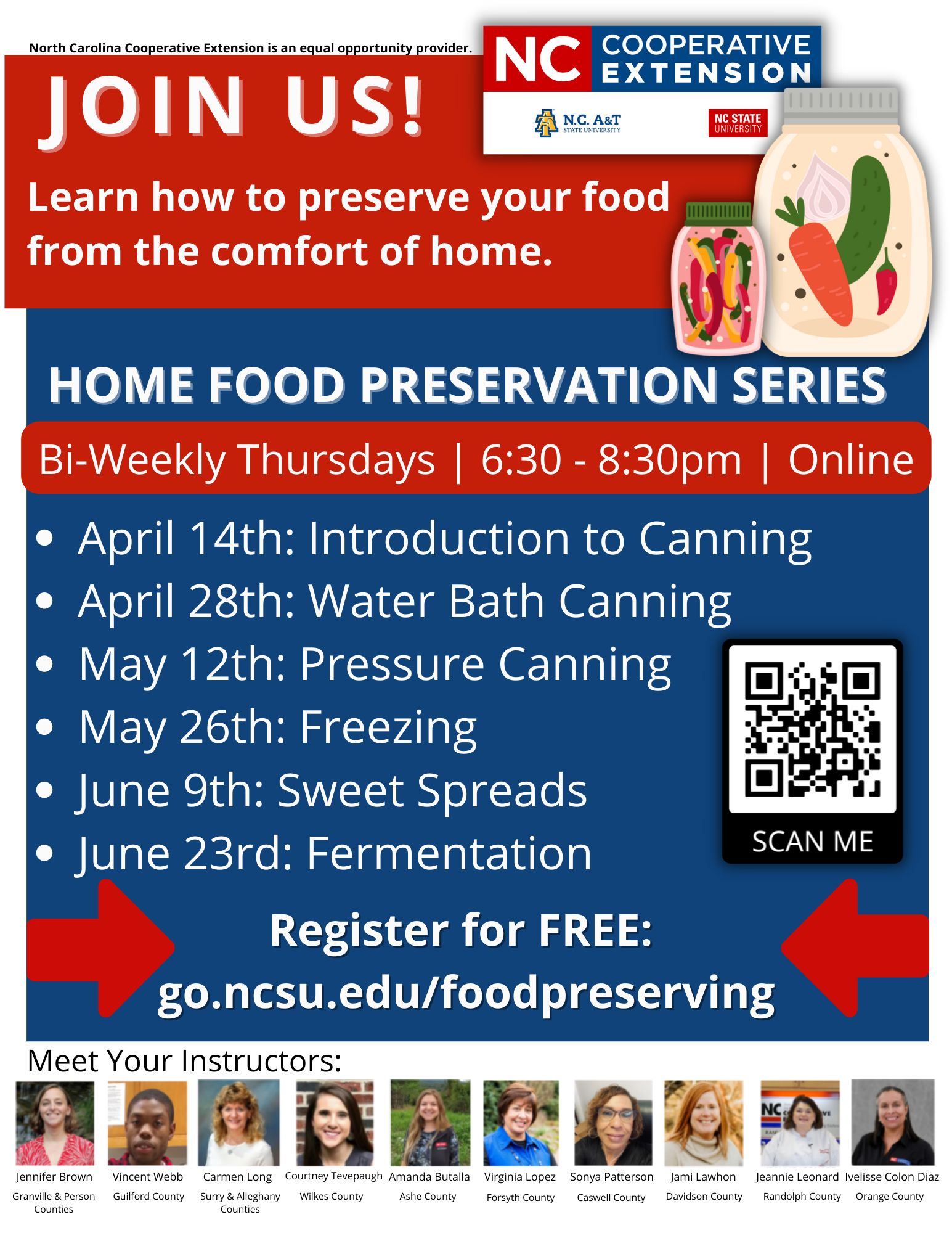Home Food Preservation – Time to Check Your Canners!
go.ncsu.edu/readext?859837
en Español / em Português
El inglés es el idioma de control de esta página. En la medida en que haya algún conflicto entre la traducción al inglés y la traducción, el inglés prevalece.
Al hacer clic en el enlace de traducción se activa un servicio de traducción gratuito para convertir la página al español. Al igual que con cualquier traducción por Internet, la conversión no es sensible al contexto y puede que no traduzca el texto en su significado original. NC State Extension no garantiza la exactitud del texto traducido. Por favor, tenga en cuenta que algunas aplicaciones y/o servicios pueden no funcionar como se espera cuando se traducen.
Português
Inglês é o idioma de controle desta página. Na medida que haja algum conflito entre o texto original em Inglês e a tradução, o Inglês prevalece.
Ao clicar no link de tradução, um serviço gratuito de tradução será ativado para converter a página para o Português. Como em qualquer tradução pela internet, a conversão não é sensivel ao contexto e pode não ocorrer a tradução para o significado orginal. O serviço de Extensão da Carolina do Norte (NC State Extension) não garante a exatidão do texto traduzido. Por favor, observe que algumas funções ou serviços podem não funcionar como esperado após a tradução.
English
English is the controlling language of this page. To the extent there is any conflict between the English text and the translation, English controls.
Clicking on the translation link activates a free translation service to convert the page to Spanish. As with any Internet translation, the conversion is not context-sensitive and may not translate the text to its original meaning. NC State Extension does not guarantee the accuracy of the translated text. Please note that some applications and/or services may not function as expected when translated.
Collapse ▲With gardening season quickly approaching it’s time to begin preparing to preserve the upcoming harvest. Now is the time to gather supplies and check the condition of your canner so it’s ready to preserve. Modern pressure canners can have a dial gauge or weighted gauge to indicate pressure. Weighted gauges rock or “jiggle” when at the correct pressure. Check your manufacturer’s directions to know how often the weight should rock during processing. Dial gauge canners usually have a dial to indicate pressure and a counterweight to seal the vent and pressurize the canner. The counterweight mustn’t be confused with a weighted gauge; it should not jiggle or rock during processing.
If you have a dial gauge pressure canner it’s recommended to test for accuracy each year. Having a dial gauge out of calibration poses a risk of under-processing food. Under-processing of food can lead to harmful toxins such as botulism, which can result in illness and even death. For canning low-acid foods such as vegetables, meats, poultry, and seafood the only recommended method is pressure canning. If the dial gauge reads high or low by more than two pounds at 5, 10, or 15 pounds pressure, replace it. If it is less than two pounds off in accuracy, you can make adjustments as needed to be sure you have the required pressure in your canner.
However, weighted gauge pressure canners are designed to maintain accuracy over time and do not need to be tested. Regardless of the canner style you own, it’s also important to check that the vent and safety valve are clean and free of debris. Check that the gasket is in good condition to prevent steam from escaping. If needed, new gaskets can be found at local hardware stores or ordered from the manufacturer. Find out more information from the National Center for Home Food Preservation.
Wilkes County Cooperative Extension will test your dial gauge canner free of charge. This process takes less than 10 minutes and will give you peace of mind for the season. Please call ahead to make an appointment so that we can ensure someone is available to test the gauge. In addition, if you are new to home food preservation or simply need a refresher Wilkes County Cooperative Extension is offering a series of programs to help. Visit the website wilkes.ces.ncsu.edu/events or call 336-651-7330 to find out more information.





